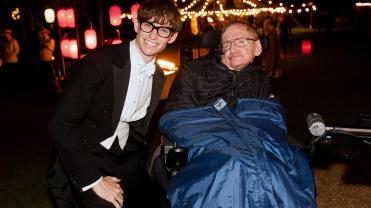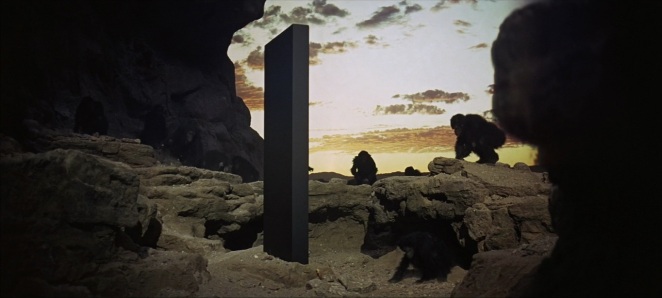Science and cinema have something of a complicated relationship.
Despite being just over a century old, cinema has expanded to become a cornerstone of modern culture. Numerous movie classics have become firmly cemented in our collective consciousness, many of which take science and its consequences as a central theme, or as the backdrop against which the drama unfolds. But how important is it, if at all, that film makers ensure the science depicted within is realistic?
Major productions now routinely employ science advisors and consultants, even when the plot itself is inherently fantastical. Cosmologist Sean Carroll served as science advisor on Kenneth Branagh’s ‘Thor’; presumably his job description was something like ‘despite heavy references to the Norse Gods, help us ensure a level of realism’. Films such as these are fairly innocuous in terms of scientific realism, the plot itself requires one big suspension of disbelief (ie that Thor exists, or that Natalie Portman is a physicist) and then the science advisor steps in to ensure the script is free of any glaring errors. For movies in which science is as peripheral as Thor, it is fairly inconsequential that Stellan Skarsgård says ‘Einstein-Rosen bridge’ instead of ‘wormhole’ (yes, Sean Carroll actually prides himself on this indispensable contribution to cinema)
What about when science isn’t on the periphery, when the plot brings it to the fore, does this necessitate a higher degree of truthfulness? The short answer is: it depends on the genre, or at least the purpose of the film. This is a good time to make the distinction between ‘science fiction’ and ‘science fantasy’. Author Ray Bradbury characterises science fiction as a ‘sociological study of the future’; essentially this genre explores the societal impacts of particular technologies or scientific principles that have been allowed to permeate civilization, like the Replicants in Blade-runner, medical technology in Rise of the Planet of the Apes, or cloning in Jurassic Park. Science fiction puts a scientific principle at its centre, and as such a certain degree of faithfulness is necessary if you want to be effectual. The best in this genre seem to give equal weight to scientific realism as to philosophical implications; the uniquely human struggle to co-exist with the ‘other’, whether it be machines, aliens or a new and pervasive technology. The more credible this ‘other’, the better the audience can identify with the struggle.
 Science fantasy on the other hand is typified by Star Wars, the science is not integral to the plot but it threads itself throughout. The setting is vaguely futuristic and advanced on the surface, but the bare bones of the plot could be mapped onto a different context without much damage. Feudal Japan would my first choice for a Star wars re-hash, swapping lightsabres for Katanas, Sith for Samurai and well I suppose the emperor is still an emperor, but the plot could be left largely alone save for any explicit references to technology. Accuracy in science fantasy films is almost irrelevant; it’s missing the point to debate whether the Death-star is feasible. Films in this genre prize drama above reality almost by definition. However that’s not to say ‘anything goes’ in science fantasy, these films must still strive to create a sense of consistency in tone, it must quickly establish the limits of possibility otherwise no real drama could unfold. The reason ‘Prometheus’ felt quite insubstantial is that it was never established what the black gloop is and what it can do; it had wildly different effects in different contexts (dissolved one person’s face, zombified another, impregnated a third), a sloppy ‘deus ex machina’, conveniently advancing the plot wherever the writers were too lazy to concoct something more engaging, therefore the tension dissipates quickly. Incidentally my failure to engage with the Harry Potter franchise is for the same reason. The rules and limits of magic are vaguely explained, such that any serious danger to the protagonist is undercut by the possibility of a convenient new spell we haven’t yet heard of fixing everything.
Science fantasy on the other hand is typified by Star Wars, the science is not integral to the plot but it threads itself throughout. The setting is vaguely futuristic and advanced on the surface, but the bare bones of the plot could be mapped onto a different context without much damage. Feudal Japan would my first choice for a Star wars re-hash, swapping lightsabres for Katanas, Sith for Samurai and well I suppose the emperor is still an emperor, but the plot could be left largely alone save for any explicit references to technology. Accuracy in science fantasy films is almost irrelevant; it’s missing the point to debate whether the Death-star is feasible. Films in this genre prize drama above reality almost by definition. However that’s not to say ‘anything goes’ in science fantasy, these films must still strive to create a sense of consistency in tone, it must quickly establish the limits of possibility otherwise no real drama could unfold. The reason ‘Prometheus’ felt quite insubstantial is that it was never established what the black gloop is and what it can do; it had wildly different effects in different contexts (dissolved one person’s face, zombified another, impregnated a third), a sloppy ‘deus ex machina’, conveniently advancing the plot wherever the writers were too lazy to concoct something more engaging, therefore the tension dissipates quickly. Incidentally my failure to engage with the Harry Potter franchise is for the same reason. The rules and limits of magic are vaguely explained, such that any serious danger to the protagonist is undercut by the possibility of a convenient new spell we haven’t yet heard of fixing everything.
Scientific accuracy takes on paramount  importance in another genre. The scientist’s biopic is enjoying something of a renaissance currently, with producers queuing up to buy the rights to the biographies of esteemed scientists. Disappointingly these tend to be very light on the science itself; typically there will be a montage of the hero scribbling equations on blackboards looking deeply bothered, followed by an explanation to the lay-person using a hilarious metaphor. Ta-da, the science is finished. This is more aggravating than any inconsistencies in science fiction and fantasy; these are real people who made great contributions to society, and like any matter of historical fact there is a certain responsibility to be faithful to the facts. In The Theory of Everything, Eddie Redmayne’s Stephen Hawking appears to have an unending series of eureka moments, despite getting his jumper stuck on his head. Obviously the long process of refining and testing cosmological equations doesn’t make for gripping drama, but I’m left wondering how many people leave the cinema appreciating that the great bulk of any scientific endeavour consists in exactly that. According to Hollywood, all it takes to win the Nobel Prize is to go to any sufficiently romantic setting with a constipated facial expression, and then simply count down the seconds until revelation strikes.
importance in another genre. The scientist’s biopic is enjoying something of a renaissance currently, with producers queuing up to buy the rights to the biographies of esteemed scientists. Disappointingly these tend to be very light on the science itself; typically there will be a montage of the hero scribbling equations on blackboards looking deeply bothered, followed by an explanation to the lay-person using a hilarious metaphor. Ta-da, the science is finished. This is more aggravating than any inconsistencies in science fiction and fantasy; these are real people who made great contributions to society, and like any matter of historical fact there is a certain responsibility to be faithful to the facts. In The Theory of Everything, Eddie Redmayne’s Stephen Hawking appears to have an unending series of eureka moments, despite getting his jumper stuck on his head. Obviously the long process of refining and testing cosmological equations doesn’t make for gripping drama, but I’m left wondering how many people leave the cinema appreciating that the great bulk of any scientific endeavour consists in exactly that. According to Hollywood, all it takes to win the Nobel Prize is to go to any sufficiently romantic setting with a constipated facial expression, and then simply count down the seconds until revelation strikes.
Scientific accuracy will never be the most important element in any film, even the scientist’s biopic. Plot, dialogue, acting, cinematography, and score still overwhelmingly determine the quality of any movie, but just take a moment to consider what makes ‘2001: A Space Odyssey’ so resoundingly brilliant, and ‘Angels and Demons’ so instantly forgettable, and it should be apparent that the level of scientific realism can be the icing on the cake, or the final straw.

